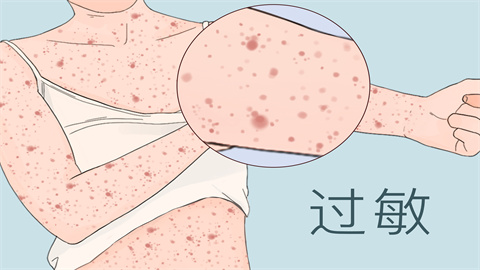What are the typical symptoms of drug allergic reactions?
Generally, typical symptoms of drug allergy include itching, rash, fever, nausea, and abdominal pain. If discomfort occurs, timely medical attention is recommended. The detailed analysis is as follows:

1. Itching
Patients with drug allergies may experience itching when their skin is stimulated by allergens. The severity of the itching varies; mild cases may only occasionally experience slight irritation, while severe cases may endure intense itching leading to constant scratching.
2. Rash
Following a drug allergic reaction, allergens may stimulate capillaries, increasing their permeability and resulting in rashes. These rashes can vary in appearance, presenting as papules, maculopapular rashes, or urticarial wheals.
3. Fever
After a drug allergy occurs, the body may produce endogenous pyrogens, potentially increasing heat production and causing fever.
4. Nausea
When certain drugs provoke allergic reactions, they may irritate the digestive system, causing gastrointestinal dysfunction. Patients may feel discomfort in the stomach area and a sensation of wanting to vomit.
5. Abdominal Pain
After being stimulated by drug allergens, the gastrointestinal tract may be unable to tolerate the irritation, resulting in abdominal pain. The nature of the pain can vary and may be described as dull, distended, or colicky. The location of the pain may also vary, occurring around the navel, in the upper abdomen, or elsewhere.
Before using any medication, carefully read the drug's instructions to understand its ingredients, dosage, usage, precautions, and potential allergic reactions. If a drug is suspected to cause an allergy, allergy testing can be conducted under a doctor's guidance to determine whether an allergic reaction exists. If the test result is positive, the drug should be avoided.









